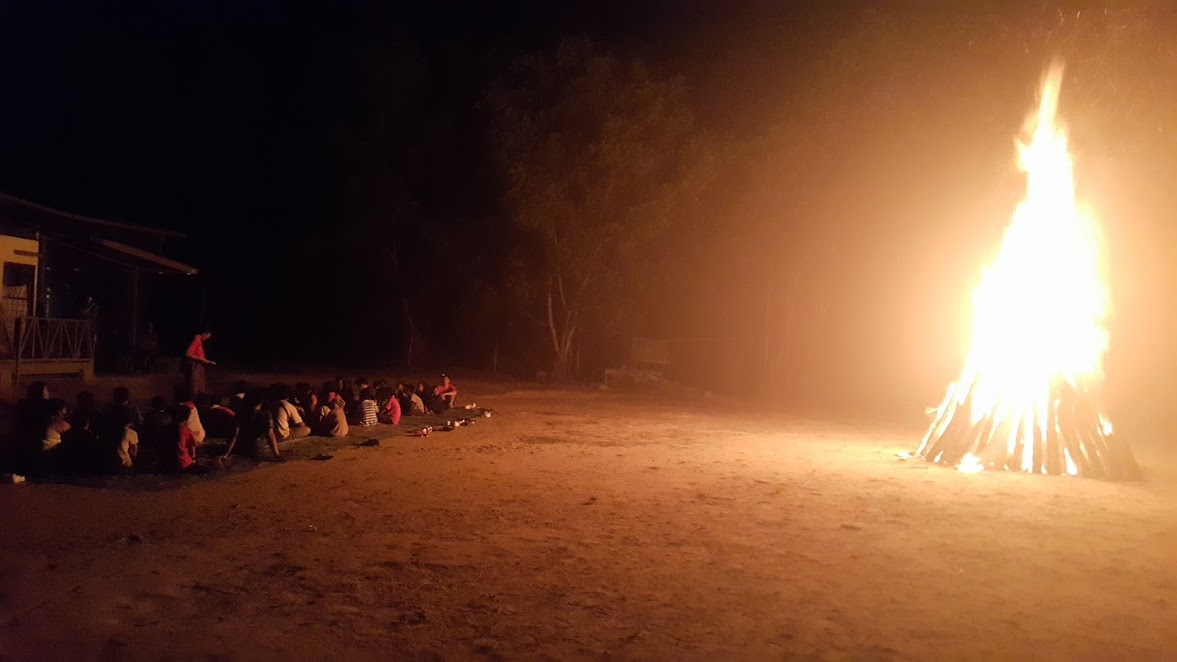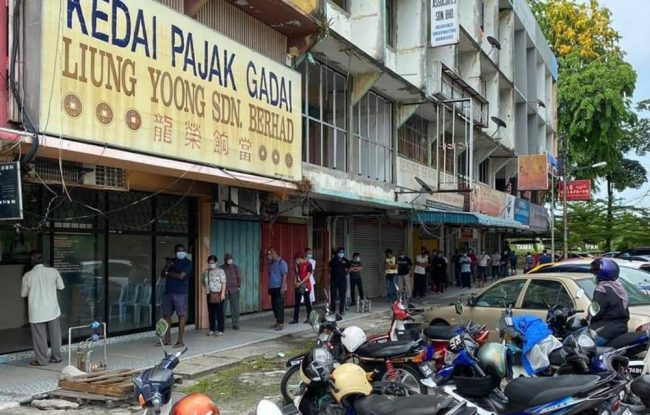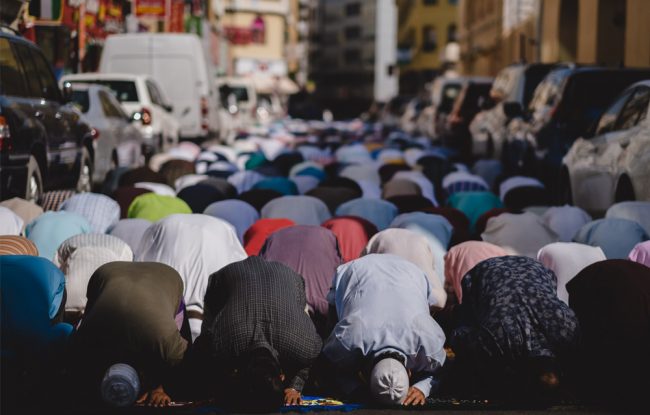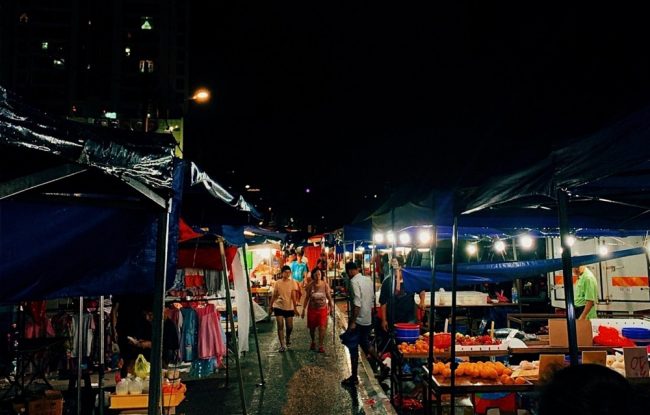As an anthropologist, I see my work as necessary in gaining deeper and more insightful perspectives of how communities work and find meaning in their own existence which includes its inherent tensions and contradictions. It is an employment that requires thorough, objective observation, and simultaneously expects the ethical preservation of agency of those you study. And although I’ve always acknowledged the importance of studying Sabah’s suppressed narratives, it was only as an anthropologist that I found the intellectual fulfilment I so desired. It is a field that I’ve been in keen apprenticeship of for over seven years. This article highlights one of those narratives from my most recent time spent in the field.My good friend Indah* and I were lounging on the veranda of her beautiful colonial home in Sandakan one hot April afternoon in 2016 when the conversation of alien danger began; the idea that foreigners are themselves the biggest cause of danger and malice in their host country. Although both of us were mostly unconvinced by this premise, our talk was solely inspired by the recent Abu Sayyaf sightings in Sabah waters, linked to the presence of hundreds of thousands of irregular migrants in Sabah.
Indah tells me her frustration on the matter boils down to how badly the matter is handled, which is due to the lack of trust authorities have for locals in the East coast of Sabah. “Vils” as she often calls me, “decent people live here. Real people just trying to survive. This town isn’t the danger zone but it’s been labelled one. Politicians think they’re protecting us, but we just get brushed aside. We should be involved too, you know.” I have always appreciated how Indah speaks so passionately about Sandakan. She, like many other residents I’ve met, feels deeply for the town, one that is rich in natural resources and history. I am empathetic and ask “Why can’t something be done about agency and leadership here?” Indah clicks her tongue in irritation.” No one wants to listen to the east coasters, Vils. They just think we’re sleeping with the enemy.”
Something in her tone made me believe her. In retrospect, I must have heard it on repeat from a variety of voices. My time spent conducting ethnographic fieldwork in the town had introduced me to many other participants that had in one way or the other highlighted the frustration of being politically invisible despite the active roles they take in combating possible extremism in their home. The conversations that follow were not easy to capture; not for the participants lack of eloquence, but simply due to their inability to openly trust, and thus, such frank exchanges about terrorism in Sabah are rare. It is my sincerest hope that this article is able to capture just an essence of the honesty and pride of the participants I’ve met.
Teaching for Safety
Teacher Mir*, a 31-year-old Sabahan of Orang Sungai descent, has dedicated almost a decade of his life to the education of undocumented children in Sandakan. Every morning before sun break, Mir has his breakfast at the church mess hall and bids his family goodbye before heading off 15 kilometres by van into the palm oil estates within the district. The journey takes much longer than it should as roads are potholed by lorries and hardly ever fixed.
Similar in vein to hundreds of learning centres throughout the east coast of Sabah, Mir’s learning centre aims to provide the most basic of elementary education for children otherwise rejected from our local schooling system. This particular learning centre hosts over 200 children and, together with Mir, are taught by 11 other teachers from the Sandakan and Kinabatangan district. One Tuesday morning sometime February this year, he invited me for an after-school tea session at the canteen. Conversations with Mir were always so engaging because he never self-censored and I appreciated that. As the discipline master, Mir has a reputation of never mincing his words and a stern demeanour. On his way over to the canteen, he waves his rotan (cane) at the children to behave but because school was over, the children run away from him, giggling.
We talked mostly about his students; sustaining children through the six years of education requires plenty of effort on the parent’s part but job losses, village raids or deportation can hinder them from ever returning the following year. Before gulping the last mouthful of cold tea, I ask how he finds the motivation to continue teaching in such unpredictable conditions. He tells me, “I teach here to fight off terrorism for Sabah”. I found his dramatic answer surprising but altogether humbling. How does teaching counter the violence from the sea, I ask. By now our jovial chatter has given way to a strange heaviness and Mir continues:
“Aku bilang sama anak-anak, jangan durang jadi pangganas. Berabis kami cikgu-cikgu mengajar di skolah, ada pulak dia mau main timbak-timbak? Bardosa bah. Pangganas jadi bagitu krana teda durang dikasi pendidikan atau paluang dalam hidup. Walaupun sikit sja pemberian kami, biar ikhlas mau kasi anak-anak ini masa depan. Tapi Puji Tuhan, segala keringat kami ada juga untungnya. Teda budak-budak kami pernah terjebak dengan racun sabagitu.”
(I told the children, don’t become terrorists. The teachers here give their all to educate them and they want to go around shooting people? That’s a sin. People become terrorists because they weren’t provided education or opportunities. We can’t offer much, but at least these children now have a future. Praise God, our hard work has paid off. None of our students have ever joined such a poisonous act.)
Several of the teachers feel the same way. They see their work as an effort in countering terrorist activities in Sabah that have grown significantly present with the years. I acknowledge the importance of this view and suggest the teachers spread the word to other willing Sabahans, but they are hesitant. Mir’s 25-year-old colleague, Yasmin*, shares with me her thoughts:
“Di Sabah, paling sensitip punya isu ini lah- Abu Sayap atau ISIS. Pasal urang takut kalau-kalau durang sudah disini kah? Anak- anak di skolah mimang ndak salah, tapi mana tau kalau kawan atau kaluarga durang yang pendatang mungkin terjebak? Lagipun, kalau cakap kuat-kuat pun, nanti ditangkap krajaan bah. Jadi, diam-diam sajalah kami.”
(In Sabah, the most sensitive topic is that of the Abu Sayyaf or ISIS. Perhaps people are afraid if they’re already here. The children here are innocent, but who knows if family or friends who are also irregular migrants might be involved? And if we talked about it publicly, the government might arrest us. It’s better to just keep quiet.)
Learning centres for undocumented children are constantly under the monitor of the state and will receive regular visits for an update on local problems and information on parents. This is to be expected and the teachers have always complied and given their fullest cooperation where it is ethical. Yet, Mir and his colleagues feel that no matter how they may contribute to the safety of Sabah, no one else, including himself, is brave enough to discuss the terrorist problem openly. “I want to talk about the kidnappings or Abu Sayyaf, but I don’t dare. Because we teach these children, we might be accused of knowing inside information, but I don’t. I’m frustrated because we feel we cannot discuss this openly in our own state.”
TOne Town, Two Worlds
I encountered a similar stance from Sakinul*, a 42-year-old Suluk businessman, and one of the first friends I made when I began work in Sandakan. For over 26 years, he has made a living from buying cheap fish and shellfish from the market and reselling them in estates and slums on the outer periphery of town. Communities that he frequents are that of irregular migrants, many of whom would not dare venture into town for fear of getting arrested.
On a daily basis, he is assisted by his second wife, an irregular migrant from Zamboanga and although he himself is Malaysian, their four children were given foreign birth certificates and told to return to the Philippines if they ever wanted to be documented. Sakinul tells me he worked very hard to make it happen but the costs (and risks) were too high. Thus, the children continue to live with the same irregular status as their mother. Due to this predicament, they are teased by their documented neighbours for being potential terrorists and this never fails to break their father’s heart.
Sakinul is in no way an isolated case. In fact, my time in the field has introduced me to a large number of Malaysian Sabahans who have or are currently cohabiting and leading domestic lives with irregular migrants or undocumented persons. On a cultural level (despite religious practice), a town like Sandakan is able to accept such union despite knowing the repercussions. However, the legal implications have not escaped them and I find many marriages between citizens and irregular migrants often living low-key lives, in hopes of avoiding the prying eyes and directed questions of the authority. However large these numbers may be, these family units remain vulnerable to accusations of threats and state security. Yet fascinatingly, it is these very same Sabahans who seem most invested in ridding Sabah of its terrorist problems. Similar to that of teachers at learning centres, their effort to combat extremist activists is a result of their close relationships with members of the irregular migrant community.
As such, Sakinul, one of my more trusted informants, would tell me via text of activities in town that I might be interested in. In the most recent of news, an Abu Sayyaf leader and his members were captured in Kuala Lumpur and never one to hide his disgust towards terrorism, Sakinul is frank about the lack of elucidation in the news. “I personally believe the reports are not complete,” he says, “people have so many questions about them. Can you believe they were from Sandakan? I’m suspicious of this! But we have to be careful with what we say around the market, or we might look suspicious too.” “But you could open a good discussion about this.” I mentioned over the phone. Exasperatedly, he tells me:
“Apa bulih bawak barbincang oh? Kau pikir pulis mau kami bising-bisingkah? Ini Sabah style bah, kalau barang ndak bagus, jangan bukak mulut kau. Duduk diam-diam, tapuk-tapuk sampai round two. Kalau kau Suluk, berbini pandatang macam aku, kau cakap-cakap, di tangkap lagi kamu. Tapi, bila datang lagi pangganas mau putung kapala, start lagi lah – “Sabah bahayalah, kami bangsa abu sayap lah”. Urang pikir kami ni mau kah macam ni?”
(What can we ever discuss? Do you think the police want us making noise? This is the Sabah style, if things aren’t good, don’t open your mouth. Sit quietly and hide till round two starts. If you are Suluk, and married to a migrant like me, and you talk openly, you will be arrested. But when the terrorists come to behead people, then the labels start again: “Sabah is dangerous, we share the same race as the Abu Sayyaf”. Do people think we like this?)
Deserving A Say
With Indah, Sakinul, Mir and Yasmin in mind, I must stress a respect for the counter narrative to this claim; that militant terrorism has had very little impact on the state of Sabah and will only succeed if we live in fear of the foreign ‘other’. In fact, despite recent headliners, towns throughout the east coast have done better than expected in its efforts to continue in normalcy. During my fieldwork from 2016- mid 2017, there were approximately five incidents involving terrorists in Sandakan and even with that, the chances of a local or tourist becoming a victim of terrorism was still rather slim. With its thriving ecotourism and maritime industry, Sandakan has attracted many from other districts to eke out a decent livelihood despite ongoing militant activities in the water borders. And on top of everything else, the state has repeatedly reminded Sabahans in the east coast that their safety against terrorism will continue to be a priority of the Malaysian government.
Regardless of political affiliation, many Sabahans tell me they sincerely appreciate the Malaysian government’s initiation of the ESSCOM (the Eastern Sabah Security Command) which protects the most vulnerable of areas from Kudat to Tawau. Yet, residents particularly in the east coast tend to suspend trust till the next major incident occurs, in silence. Throughout the years of researching irregular migrants in the east coast of Sabah, I’ve observed how discussing terrorism with poorer, working class local Malaysian residents reveals an array of unsaid insecurities that come across more powerless than most.
As it seems, the bigger issue to this is not why Sabah is a hotbed for terrorism but more so why there isn’t a greater collective ability to do more about it? Despite many state structures in place, and some grassroot attempts at eliminating future terrorists from emerging in Sabah, the already poor and sidelined Sabahans in the east coast lack the belief that there is an avenue to voice their concerns and anxieties openly and safely. Further exacerbating this is of course the social closeness between legitimate residents and their irregular ones, raising even more suspicion and distrust amongst security forces monitoring the ESSZONE.
From my conversations with Sabahans’ in the east coast, they see the state as dismissive and even punitive in addressing any criticism (constructive or otherwise). Even with the various state endorsed security apparatus in place, these communities still feel most at risk in the event of an attack or kidnapping. This is further exacerbated by the fact that these Sabah communities, both irregular and legitimate are never in isolation. Notwithstanding the mainstream narrative, Malaysian Sabahans particularly in the east coast have not and cannot lead a life separate nor distinctively different from that of their migrant neighbours, which makes vocalising these concerns and insecurities even harder and more dangerous.
Sabah shares with the Philippines one of the more volatile corners of the Malay Archipelago and coupled with the taboo subject of hosting approximately two million of Sabah’s irregular residents has not made solving the impending terrorist problem any easier. When public conversations are held on desires and intent for safety and security, they are usually held amongst the more privileged of us. But for thousands of non-urban, working class Sabahans living simpler lives, this freedom is imaginary and their agency is in needing to say more about their insecurities whenever and however necessary.
The first and most necessary step to figuring out the considerable human problem in Sabah is for the promotion of grassroot discussion. As long as we privilege more powerful and louder views than theirs, we dismiss ideas, knowledges and experiences from Sabahans like Mir and Sakinul that can and will assist in combating a slew of other neglected social issues including that of violent extremism.
*Names have been altered as per requested by participants.
Vilashini Somiah is a scholar, writer and filmmaker. Born in Kota Kinabalu, Sabah, she has always had a keen interest for underrepresented narratives in Borneo and has focused a great amount of time understanding the different perspectives of these voices and their motivations.
Her Phd research is centred on issues of deportation, irregular migration and socio-political mobility surrounding the Sulu Sea.




